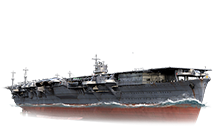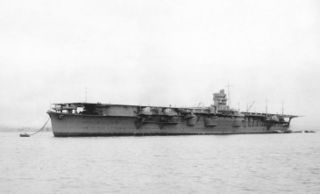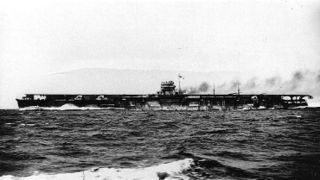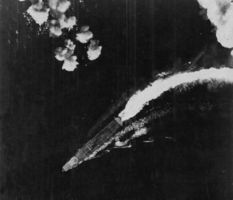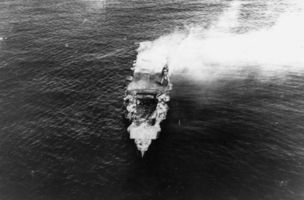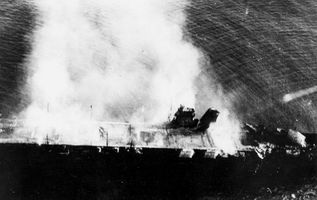PJSA011 Hiryu 1942
| Revision as of 13:11, 5 April 2016 | Revision as of 13:13, 5 April 2016 | |||
| Line 20: | Line 20: | |||
| * Low armor for a heavy carrier | * Low armor for a heavy carrier | |||
| * Humongous turn radius | * Humongous turn radius | |||
| ? | * Tier VI torpedo | + | * Tier VI torpedo bombers are made of paper, and are easily be shot down by ships Tier VII, and above | |
| * Poor torpedo protection, basically any torpedo attack on this ship will easily get you flooded | * Poor torpedo protection, basically any torpedo attack on this ship will easily get you flooded | |||
| * Poor concealment | * Poor concealment | |||
Revision as of 13:13, 5 April 2016
| kt Max Speed |
| s Rudder Shift Time |
| m Turn Radius |
| - mm Hull Armor |
| - mm Citadel Armor |
| - mm Deck Armor |
| - mm Extremities Armor |
| Guns |
| Guns |
| Torpedoes |
| Recon Squadrons |
| km Aerial Detection Range |
| km Surface Detection Range |
Modules
Compatible Equipment
Player Opinion
Performance
As a first standard sized aircraft carrier, a carrier expert will surely fall in love with the Hiryu. With a total complement of 72 planes, you practically will never run out of planes in every round, that is if you execute your attacks correctly.
However, one must be aware that the torpedo planes carried on this CV is the same as the Tier V Zuiho. This means they are practically paper if facing any warships that are above Tier VII.
Plan your every attacks when using this CV. Never stay in one place, use auto-pilot mode, continue sailing even at 1/4 your speed, and always keep your distance against the enemy.
Pros:
- Large hangar provides a total complement of 72 planes
- Top speed of 34 knots means you can easily re-position on every corner of the map
- Upgraded fighter groups can match with US fighters (If used right)
- Seal clubber, it will practically sink every ship Tier VI below in a single attack
- Superb AA Defense
Cons:
- Low armor for a heavy carrier
- Humongous turn radius
- Tier VI torpedo bombers are made of paper, and are easily be shot down by ships Tier VII, and above
- Poor torpedo protection, basically any torpedo attack on this ship will easily get you flooded
- Poor concealment
Upgrades
Get the Type7 mod. 2 Flight Control first, followed by the Mitsubishi A6M5c, and Aichi D3A2. After which research the second hull upgrade, and move on to Shoukaku.
Historical Info
Historical Gallery
| Destroyers | |
| Cruisers | |
| Battleship | |
| Aircraft Carriers |
| USA | |
| UK | |
| USSR | |
| Japan |
